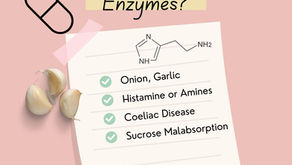

Anybody can have food intolerances from breast feeding babies to kids through to adults, young and older. Foods can cause so many different symptoms depending on your particular sensitivity.
A thorough nutritional assessment can help expose what food intolerance issues may be causing your individual symptoms and importantly how to replace lost nutrients from any food group eliminated.
WHO I HELP
POTENTIAL FOOD ISSUES
There are a number of different food issues that can occur on their own or can occur together.
Dairy Protein or Lactose Intolerance
Wheat Issues
Wheat Intolerance, Wheat Fructan Intolerance, Wheat Allergy
Gluten Intolerance or the more strict Coeliac Disease gluten exclusion.
Histamines or Amines
Salicylates
Glutamates
The FODMAP Family: Lactose, Fructose, Sorbitol, Mannitol, Fructans, and GOS (Galactans)
Monosodium Glutamate
Sulphites
Benzoates
Artificial Colours
Artificial Preservative
ADHD
Many associated issues

FACE BOOK SUPPORT GROUP: Amines, Salicylates & Glutamates: The Food Intolerance Dietitian
Lots of information, safe foods to choose, recipes and daily Specialist Dietitian Support.
My Story
I chose to specialise in Food Intolerances because I find it incredible that changing what we eat can potentially manage a range of issues such as gut symptoms, eczema, rashes, mood changes, behavioural issues in children and even sleep issues in babies.
Food intolerance requires a thorough knowledge of the different components in the diet, be it FODMAPs or food proteins such as cow's milk protein and food chemicals such as salicylates and amines/histamines.
The end result is that you get to learn so much more about which different foods may affect you, your child or baby and manage these issues through different food choices.
Reach out now to start your food journey.

Frances Walker
The Food Intolerance Dietitian
APD Clinical Dietitian 30 years experience
Monash University FODMAP trained
Professional Certificate- Medical Nutrition Therapy in Food Allergy and Intolerance
Qualified Educator (Dip.Ed)






























